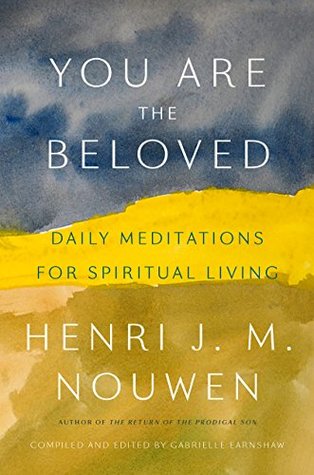More on this book
Community
Kindle Notes & Highlights
Read between
December 31, 2017 - December 27, 2018
our emptiness provides a very large and sacred space where we can welcome all the people of the world.
This means that the more we come to know ourselves, the more we come to know God’s mercy, which is beyond the mercy we know.
The prayer for God’s mercy comes from a heart that knows that this human brokenness is not a fatal condition of which we have become the sad victims, but the bitter fruit of the human choice to say no to love.
personally feel more and more that sometimes it is harder for us to fully receive love than to give it. I
know that there is nothing to fear and that dying is the greatest act of love, the act that leads me into the eternal embrace of my God whose love is everlasting.
Then, not only will the wisdom of the elderly remain hidden from us, but the elderly themselves will lose their own deepest understanding of life. For who can remain a teacher when there are no students willing to learn?
death can, indeed, be chosen as our final gift of life.
Joy and sadness are as close to each other as the splendid colored leaves of a New England fall to the soberness of barren trees.
Thus, colleges and universities meant to be places for quiet learning have become places of fierce competition, in which the rewards go to those who produce the most and the best.
Jesus is, as you know, much more than a story. He is a source of life and is truly able to touch you deeply so that you can go beyond the success-failure syndrome.
really believe that it is possible for you to develop a simple life of prayer that can give you that “holy indifference.” By that, I mean the place where you feel so truly safe and so well held that the ups and downs of your life aren’t able to distress you or excite you.
prayer of St. Francis, “Make me an instrument of your peace….”
When productivity is our main way of overcoming self-doubt, we are extremely vulnerable to rejection and criticism and prone to inner anxiety and depression. Productivity can never give the deep sense of belonging we crave.
Freedom is the true human goal. Life is only true if it is free. An obsessive concern for security freezes us; it leads us to rigidity, fixation, and eventually death.
Returning is a lifelong struggle….I am moved by the fact that the father didn’t require any higher motivation. His love was so total and unconditional that he simply welcomed his son home.
But then we can remember the rich powers hidden underneath that will show themselves again to those who have the patience to wait.
But most people are quite afraid of dying.
Preparing ourselves for our deaths is the most important task of life, at least when we believe that death is not the total dissolution of our identity but the way to its fullest revelation. Death, as Jesus speaks about it, is that moment in which total defeat and total victory are one. The cross on which Jesus died is the sign of this oneness of defeat and victory. Jesus speaks about his death as being “lifted up.”
Suddenly a wall becomes a gate, and although we are not able to say with much clarity or precision what lies beyond the gate, the tone of all that we do and say on our way to the gate changes drastically.
And so a new vision of maturity may emerge; not a vision in which I am more and more able to deal with my own pains, but one in which I am more willing to let my Lord deal with them. After all, maturation in a spiritual sense is a growing willingness to stretch out my arms, to have a belt put round me, and to be led where I would rather not go (John 21:18).
I realize on a very deep level that dying is the most important act of living. It involves a choice to bind others with guilt or to set them free with gratitude.
I can only look for something that I have, to some degree, already found. How can I search for beauty and truth unless that beauty and truth are already known to me in the depth of my heart?
One of the mysteries of life is that memory can often bring us closer to each other than can physical presence.
What are we then told to do with that pain, with that brokenness, that anguish, that agony that continually rises up in our heart? We are called to embrace it, to befriend it.


